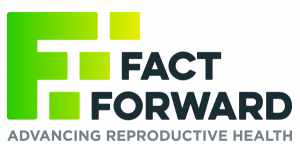Cardea provides a range of TA services to support school districts in the adoption and implementation of sound sexual health education policies and procedures. Through direct services, training, and capacity building, Cardea assists districts in adopting best practices, building the capacity of their faculty and staff, and engaging their parents and community. TA begins with the dissemination of policy, research, practices, and resources through peer-learning communities/communities of practice. Additional individualized district TA supports system changes, capacity building, training and education that results in significant changes to practices within a district and changing community perceptions and norms.
Training Hub
The Sex Education Collaborative Training Hub lists trainings for sex educators, facilitators, and other professionals on best practices for sharing important information with clients and the public. From teaching anatomy inclusively to effectively addressing bias in the classroom to addressing racial justice and equity in sex education, the Training Hub includes trainings, technical assistance, and policy support from state, regional, and national leaders in the field of sex education.
Please note: The Training Hub includes both in-person and online professional trainings. If you see a training you are interested in and it isn’t listed as virtual, please reach out directly to any of our members to find out what's possible!
Trainings Offered by State-Based and National Organizations
Displaying results 96 - 100 of 137At EyesOpenIowa, we specialize in helping educators, schools, and organizations deliver accurate, inclusive, and policy-aligned sexual health education. With decades of experience, our dedicated training and leadership teams work closely with you to develop a customized plan that meets your specific needs. Here's how we can support you:
Curriculum Alignment to Policies and Standards We ensure your curriculum is fully aligned with state and federal policies, as well as the latest educational standards, so your program is compliant and impactful.
Curriculum Development We collaborate with you to create a robust, tailored curriculum that incorporates the latest research and best practices, ensuring it is both effective and engaging.
Curriculum Review for Cultural and LGBTQ Inclusivity Our team assesses your content for cultural relevance and LGBTQ inclusivity, providing recommendations that foster an environment of respect and understanding for all students.
Curriculum Review for Medical Accuracy We verify the medical accuracy of your curriculum, ensuring all health-related content is up-to-date and evidence-based, promoting healthy decision-making.
Scope and Sequence Development and Review We help you develop or refine your scope and sequence to ensure learning objectives are met in a logical, structured manner, maximizing educational impact.
Partner with EyesOpenIowa to elevate your curriculum with customized, expert support, ensuring it is comprehensive, inclusive, and meets the highest standards of educational excellence.
Healthy Teen Network customizes techincal assistance and support to meet your unique needs.
Areas of expertise span a wide range of topics across adolescent sexual and reproductive health, evidence-based approaches, curricula, working with diverse youth, training adult professionals, innovation and research, human-centered design, advocacy and public policy, strategic planning, sustainability, and more.
Virtual PD - Culturally Responsive Instruction When Teaching Sex Education
Virtual Professional Development is a simulated classroom where teachers can practice teaching student avatars using short scenarios and support from an instructional coach, so they can quickly learn and master the skills they most need to be effective. With upper elementary, middle and high school classrooms, Virtual PD has scenarios for teachers of all grade levels across a wide range of topics aligned with the Professional Learning Standards for Sex Education (PLSSE). You can watch the video here (link is external) to learn more about Virtual PD.
Using the Virtual Professional Development classroom simulator, the educator will practice Culturally Responsive Instruction When Teaching Sex Education with the student avatars. In this scenario, the educator is teaching a lesson on different kinds of families with their students. After allowing students time to list their own ideas, the educator asks students to engage in a think/pair/share activity to see if they can add to their lists. They then facilitate a brainstorm activity about different kinds of families. In this simulation with five students, the participant will need to demonstrate three strategies for creating culturally responsive classrooms.
- Indicator 2 (K-12): Demonstrate three strategies for creating culturally responsive classrooms. (S)
Askable Adult: Talking to Teens About Tough Topics
In this training, participants will improve their skills in talking with adolescents about delicate topics and answering sensitive questions. By becoming an Askable Adult, participants will gain essential tools to support teens in making healthy decisions about relationships, love, and sex.
- Indicator 1 (K-12): Demonstrate three techniques to create an inclusive and affirming learning environment. (S)
- Indicator 1 (K-12): Describe three distinguishing characteristics between healthy and unhealthy relationships, involving family, friends, and/or romantic partners.
- Indicator 2 (K-12): Explain three ways that healthy relationships can positively impact personal well-being.
- Indicator 2 (K-12): Demonstrate the ability to effectively respond to three different types of challenging questions. (S)
- Indicator 1 (K-12): Explain the differences between personal and universal values relating to sexuality.
- Indicator 2 (K-12): Describe how verbal and nonverbal expression of personal values, and comfort with topics related to sex education, could impact one’s teaching
Additional Trainings offered by out-of-state organizations
- ‹ previous
- 13 of 49
- next ›
Child Abuse: Recognizing Signs & Intervening
Participants will gain knowledge and develop skills required to recognize signs that a child might be a victim of abuse or neglect. Participants will learn two ways to use mandated reporting as an intervention.
This training is designed for:
- Educators
- Teachers
- Substitute Teachers
- Counselors
- Coaches
- Parents
- Clergy
- Community Workers
- Healthcare Providers
- Healthcare Staff
- Clinicians





